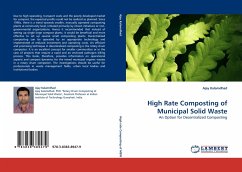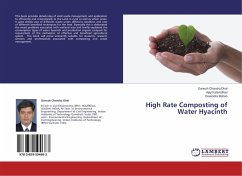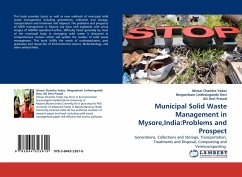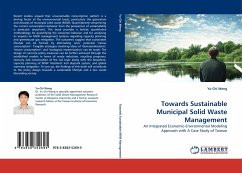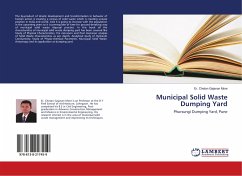Due to high operating, transport costs and the poorly developed market for compost, the expected profits could not be realized as planned. Since 1990s, there is a trend towards smaller, manually operated composting plants at community level, initiated primarily by citizen initiatives or non-governmental organizations. Hence it recommended that instead of setting up single large compost plants, it would be beneficial and more effective to set up several small composting plants. Decentralized composting can be operated by an appropriate technology and implemented at reduced investment and operating costs. An efficient and promising technique in decentralized composting is the rotary drum composter. It is an excellent concept for smaller communities or in the case of projects that require a rapid and an enclosed pathogen killing process. This book, therefore, provides information on operational aspects and compost dynamics for the mixed municipal organic wastes in a rotary drum composter. The investigations should be useful for professionals in waste management fields, urban local bodies and institutional bodies.
Bitte wählen Sie Ihr Anliegen aus.
Rechnungen
Retourenschein anfordern
Bestellstatus
Storno

